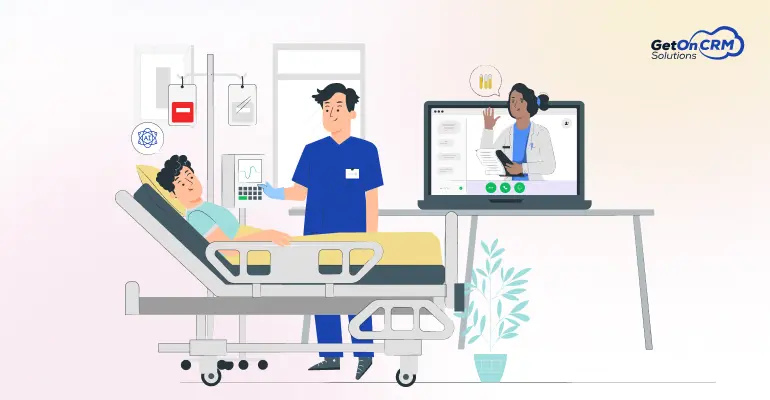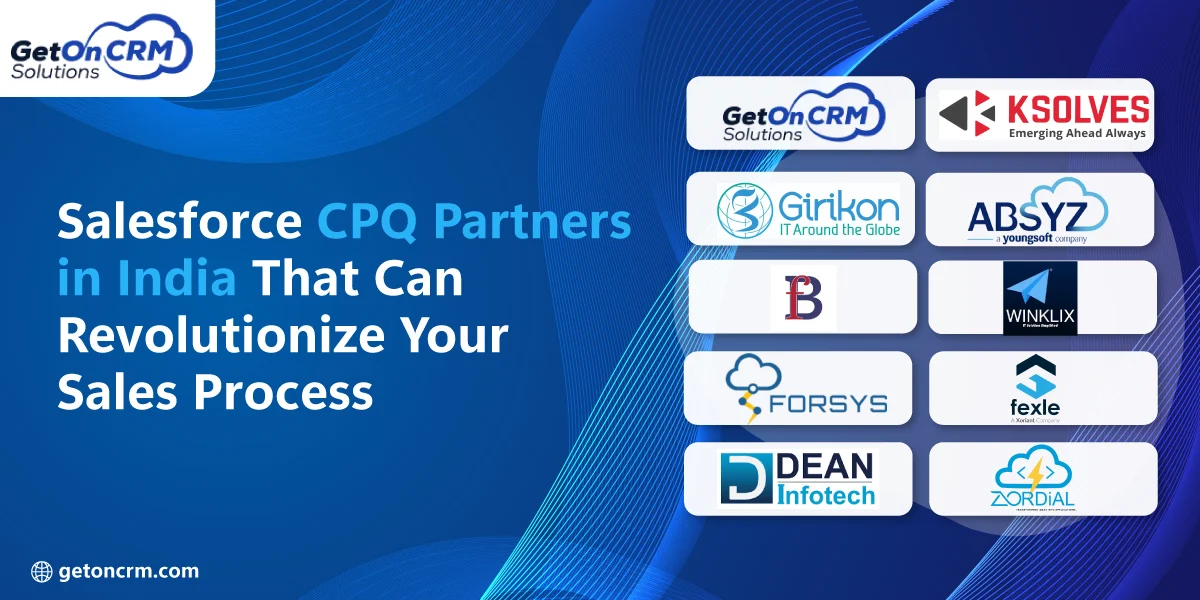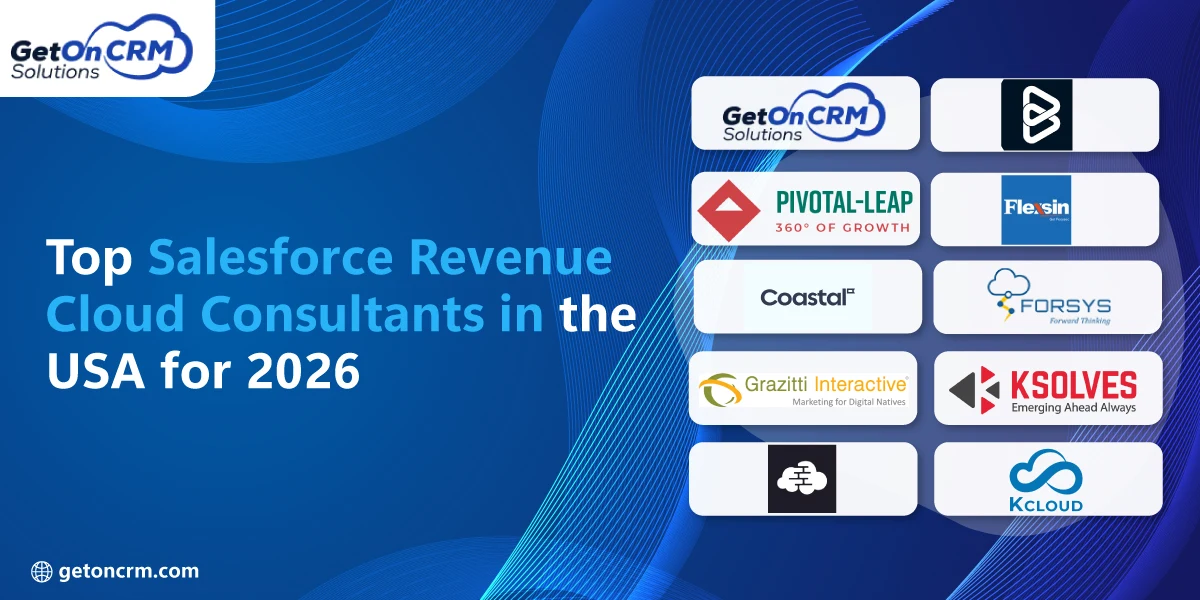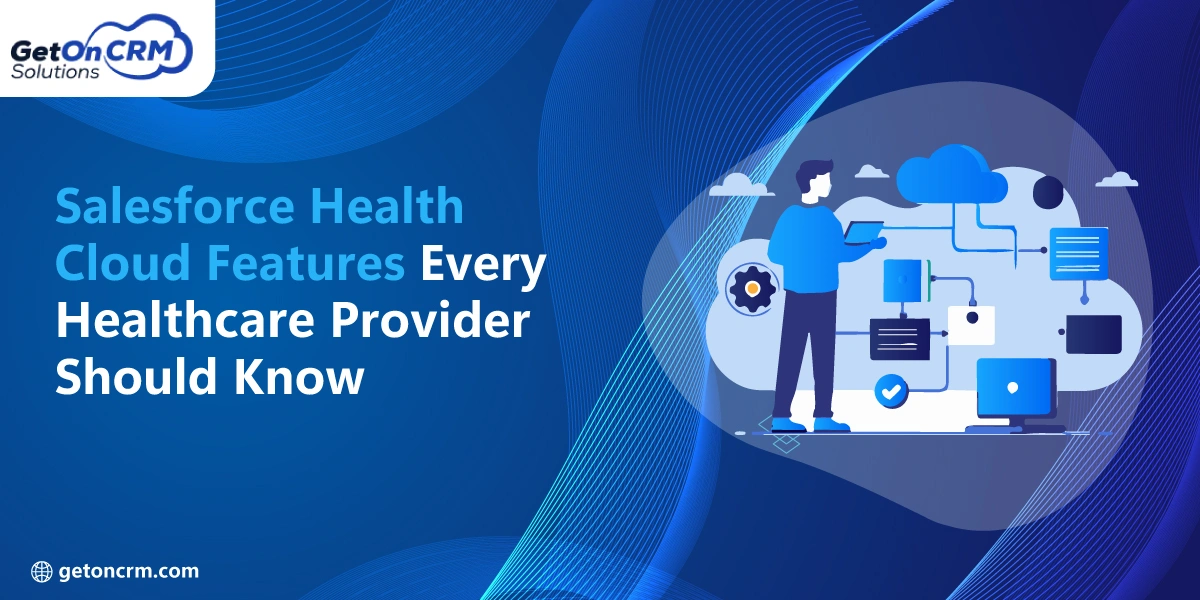In 2025, healthcare automation has evolved from a tech trend to a clinical necessity. Hospitals face mounting pressure from rising patient expectations, regulatory demands, and staff shortages. To address these challenges, providers are increasingly adopting automation in healthcare to streamline workflows, accelerate diagnostics, and reduce manual errors.
More importantly, healthcare automation for patient care enhances efficiency while ensuring personalized experiences. As AI and digital health tools mature, institutions that delay automation risk falling behind both technologically and operationally.
Let’s explore how business process automation in healthcare is changing patient care across every department.
The Role of Salesforce Health Cloud in Automation
Healthcare digital experiences Salesforce Health Cloud plays a critical role in enabling connected care across the healthcare ecosystem. It allows hospitals to unify clinical, operational, and patient experience data into a centralized view—fueling faster decision-making and smoother workflows.
From appointment scheduling to post-discharge engagement, Salesforce Health Cloud for patient care automation is driving end-to-end transformation across facilities.
Using Pardot for healthcare, organizations can automate patient outreach, reminder campaigns, and educational content delivery securely within Salesforce.
Key Benefits of Salesforce Health Cloud in Healthcare Automation
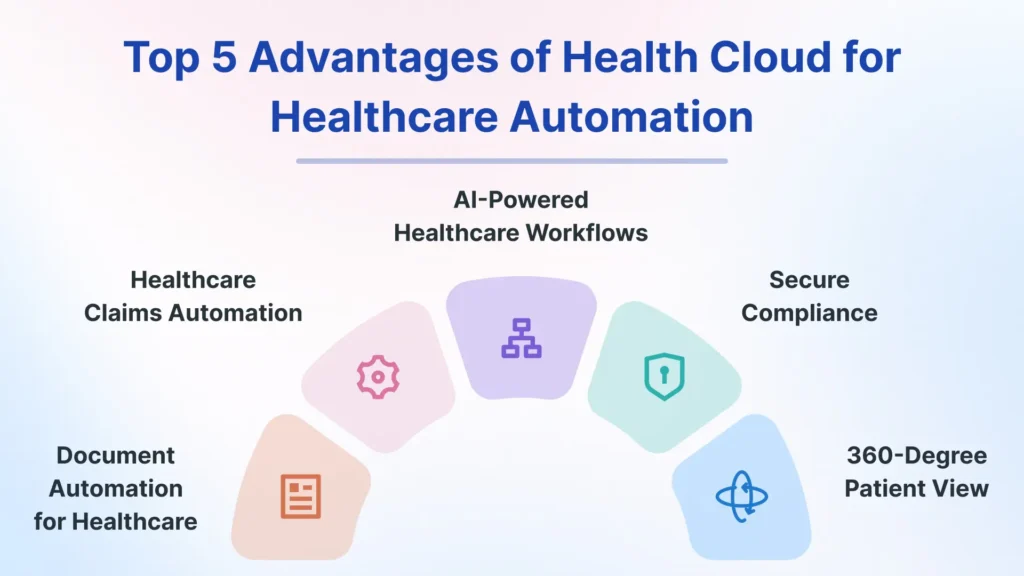
- Document Automation for Healthcare: Streamlines intake forms, medical records, and discharge documentation, reducing admin load.
- Healthcare Claims Automation: Manages and tracks billing with insurance providers through seamless integrations.
- AI-Powered Healthcare Workflows: Enables predictive care plans and personalized communication using AI insights.
- Secure Compliance: Built-in support for HIPAA and GDPR compliance safeguards patient data.
- 360-Degree Patient View: Allows care teams to access every touchpoint in a patient’s journey for better care coordination.
Global Examples and Success Stories
Healthcare Claims Automation: A Success Story
Industry Overview:
One of our clients streamlined their claims processing workflow through Salesforce Health Cloud automation, reducing errors and improving payout turnaround — a true healthcare claims automation success story.
Challenges Faced:
- Fragmented Customer Data: Disparate data sources hindered a unified view of customer information, affecting service delivery.
- Inefficient Email Communications: The existing system lacked personalization and effective tracking, leading to suboptimal engagement.
- Manual Lead Management: The absence of automation in managing new user sign-ups and leads resulted in operational inefficiencies.
Solutions Implemented:
- Salesforce Marketing Cloud: Integrated various customer data sources to provide a comprehensive view, enabling personalized and effective communications. Learn more about our approach to healthcare marketing automation.
- Salesforce Sales Cloud: Automated marketing strategies, including lead logging, email reminders for platform registration, and dissemination of relevant content to engage customers.
- Tailored Email Notifications: Utilized Salesforce tools to set up personalized email communications with tracking capabilities, enhancing engagement effectiveness.
Statistical Outcomes:
- 30% Increase in Customized Interactions: Led to deeper customer engagement.
- 25% Rise in Email Engagement Rates: Achieved through optimized and personalized campaigns.
- 40% Improvement in Lead Management Processes: Resulted from streamlined operations and automation. These strategic implementations not only enhanced the overall customer experience by streamlining operations but also led to a notable increase in sales through more targeted and effective email marketing campaigns.
Covered Full Case Study: A Healthcare Giant Serve Their Customers Better With Salesforce
Innovative Clinical Solutions: AI and automation in Healthcare
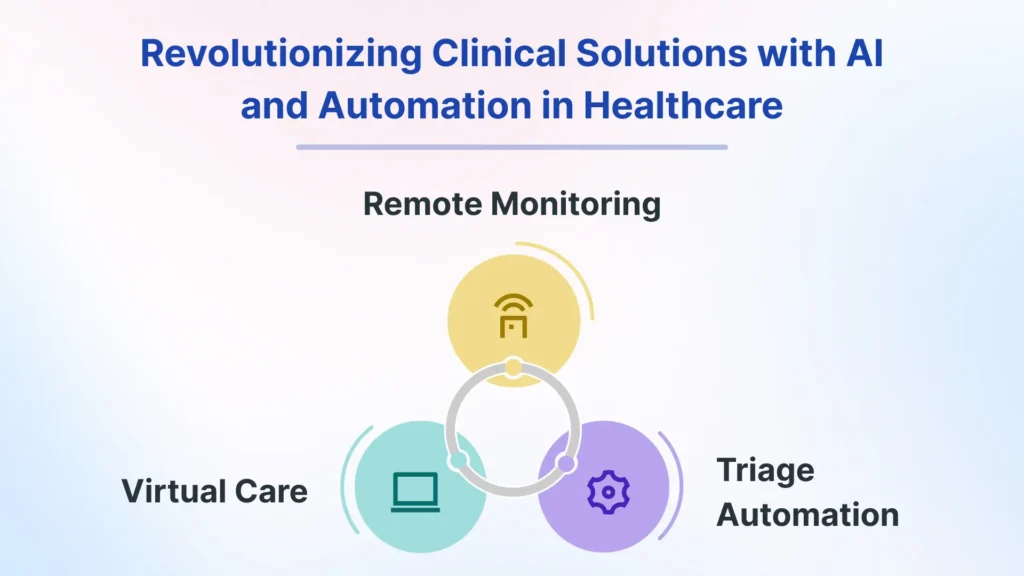
Clinics are now turning to AI and automation in healthcare to enhance patient outcomes, even beyond physical visits.
With rising demand for value-based care, clinical automation solutions are leveraging automated tools that offer real-time insights, predictive support, and scalable communication—without adding strain on staff.
Remote Monitoring:
Patients with chronic conditions are continuously monitored through wearable devices. Alerts are triggered automatically when vitals deviate from normal ranges.
Triage Automation:
AI-powered healthcare workflows conduct initial assessments, ask symptom-based questions, and assign priority levels—saving nurses valuable time and speeding up care response.
Virtual Care:
Video consultations are supported with pre-filled medical histories, real-time notes, and AI-generated follow-ups, ensuring accurate and efficient remote care delivery.
Administrative Automation in Healthcare Operations
Robotic process automation in healthcare for patient care efficiency is accelerating how hospitals manage insurance, billing, scheduling, and compliance.
RPA in hospital administration uses AI-driven bots to handle repetitive tasks, freeing up healthcare professionals to focus on higher-value activities. These Clinical automation solutions 2025 are evolving to help automate core administrative workflows.
The shift to healthcare payment automation and smart claims processing is proving especially beneficial in urban hospitals, reducing processing times by over 50%.
Next-Gen Technologies Transforming Patient Care
The future of healthcare is being redefined by the integration of AI-powered healthcare workflows, real-time data from wearable devices, and deep insights from historical patient records. This convergence is enabling a shift from reactive care to predictive, personalized healthcare delivery—improving patient safety, operational efficiency, and clinical outcomes.
In modern healthcare settings, AI is no longer a supportive tool—it’s becoming the driving force behind smarter decision-making. By automating routine tasks, analyzing vast datasets, and delivering actionable insights, AI-powered healthcare workflows are helping clinicians identify potential complications before they arise and respond more effectively when they do.
One powerful example of this digital evolution is Agentforce, a solution built on the Salesforce platform. Integrated with Salesforce’s AI capabilities, including Einstein GPT, Agentforce enables healthcare staff to:
- Automate patient communications and follow-ups,
- Predict patient risks and complications using historical and wearable data,
- Streamline care coordination across departments and teams.
This is a significant step in the digital health transformation in hospitals, where data is used not only for documentation but to drive real-time, life-saving actions. Through unified dashboards and intelligent automation, hospitals can ensure that the right care reaches the right patient at the right time.
AI Agents like Agentforce continue to evolve, they’re paving the way for a more connected, proactive, and patient-centric system, solidifying AI’s role in shaping the future of healthcare.
Predictive Analytics & IoT in Patient Monitoring
IoT is now a silent driver in healthcare automation for patient care. Devices collect continuous vitals, transmit anomalies, and trigger alerts creating a predictive ecosystem around each patient.
Hospitals using IoT in healthcare automation for patient monitoring are reporting faster response times and fewer emergency escalations.
Security, Compliance & Trust in Automated Healthcare
For all its advantages, secure healthcare automation platforms must comply with HIPAA, GDPR, and FHIR standards. Providers are investing in transparent audit trails, consent tracking, and AI governance models to build patient trust.
Learn how to build compliant healthcare automation platforms in our CRM cost breakdown guide.
The Business Impact: What Healthcare Leaders Need to Know
Benefits of healthcare automation for hospitals go far beyond reducing costs. Healthcare automation isn’t just improving operations—it’s transforming the business landscape. As patient volumes grow and regulatory expectations evolve, healthcare process automation becomes essential to remain profitable and competitive.
Here are 5 points on how The Business Impacts and What Healthcare Leaders Need to Know:
- Improved ROI – Automation reduces manual tasks and operational costs, boosting healthcare automation ROI.
- Faster Turnaround Times – Workflow automation in healthcare shortens patient onboarding, billing cycles, and discharge processes.
- Enhanced Decision-Making – Real-time insights from AI and automation in healthcare support better resource allocation and clinical decisions.
- Higher Patient Retention – Automated patient engagement tools improve satisfaction and encourage return visits.
- Regulatory Confidence – Compliant document automation for healthcare helps meet HIPAA/FHIR requirements while maintaining audit trails.
Curious why many providers are switching to Salesforce? Learn more about the benefits of using Salesforce as a healthcare CRM system to drive digital transformation.
How GenAI Is Revolutionizing Healthcare Workflows
The introduction of GenAI vs traditional RPA in healthcare workflows is reshaping how healthcare providers manage clinical and operational tasks. Unlike traditional robotic process automation in healthcare, which focuses on rule-based automation, GenAI in healthcare documentation uses natural language processing and machine learning to understand, generate, and respond to complex healthcare data.
In modern care settings, GenAI is helping clinicians save time, reduce manual effort, and improve diagnostic precision. From transcribing doctor-patient conversations to suggesting care plans based on patient history, GenAI is acting as an intelligent co-pilot for healthcare staff.
With Salesforce, healthcare providers can automate the patient journey in CRM, tracking touchpoints from first contact to post-care engagement.
Key Use Cases Where GenAI Is Making an Impact:
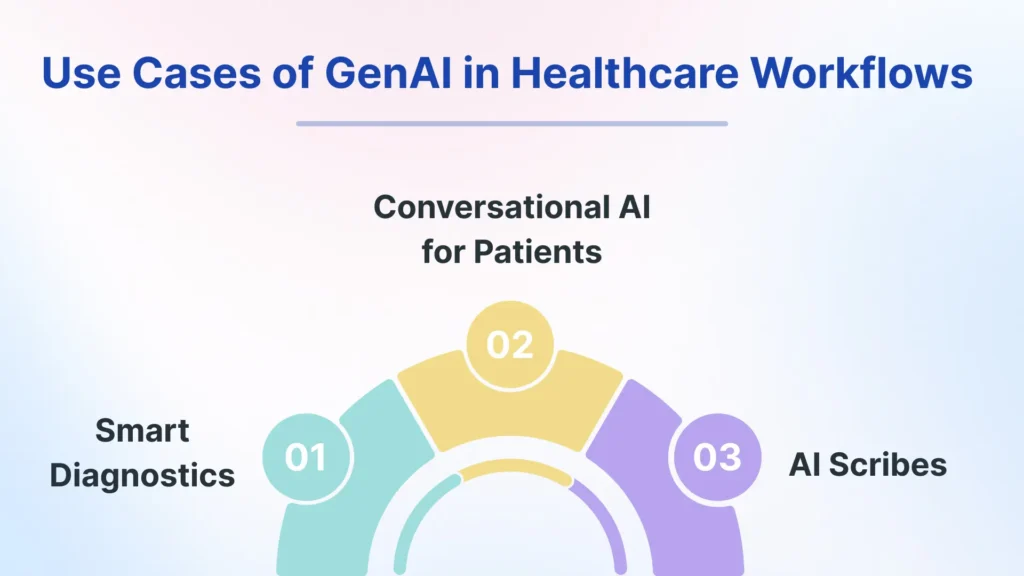
- AI Scribes: GenAI tools can listen to consultations and automatically create structured clinical notes, reducing after-hours documentation.
- Smart Diagnostics: Tools like MedPaLM-2 interpret medical queries and imaging data to assist with accurate, evidence-backed diagnosis.
- Conversational AI for Patients: Automates appointment scheduling, medication reminders, and post-care guidance using human-like interactions.
By enabling AI-powered healthcare workflows, GenAI is bridging the gap between administrative ease and clinical accuracy, bringing healthcare one step closer to being truly intelligent and patient-first.
Beyond administrative workflows, clinical healthcare automations in Salesforce can assist with appointment scheduling, patient follow-ups, and data synchronization.
Patient Journey Automation for Better Care Coordination
Automating the patient journey helps healthcare organizations deliver timely communication and personalized experiences.”
Emerging Use Cases of Automation in Healthcare Department
Automation in healthcare is no longer limited to one function: it’s transforming departments across the care continuum.
Each department is adopting tailored clinical automation solutions 2025 to improve efficiency and outcomes.
- Clinical: AI-driven decision support tools, remote vitals monitoring, predictive diagnostics, and digital triage assist in patient care without overburdening the staff.
- Administrative: RPA in hospital administration bots streamline billing, insurance claims, scheduling, and HR operations, ensuring better operational control and fewer delays.
- Pharmacy: Automated inventory management, refill notifications, and e-prescriptions reduce medication errors and support timely interventions.
- Chronic Care Management: Behavior tracking tools and predictive alerts help manage long-term patient engagement and prevent readmissions.
These department-specific examples of automation in healthcare show how each function benefits from digitization.
What’s Next? 2025–2027 Trends in Healthcare Automation
As technology evolves, here are six trends shaping the future trends in patient care automation:
- Voice AI in Diagnostics: Clinicians use speech-based tools for faster data entry and diagnostics.
- Federated Learning Models: Patient data is trained across devices while preserving privacy.
- GenAI Over Traditional RPA: AI now handles decision-making, not just repetitive tasks.
- Hyper-Personalized Engagement: Data-driven nudges and outreach tailored to each patient.
- Digital Twin for Patient Simulation: Simulate treatment outcomes before real application.
- AI Transparency and Explainability: Healthcare systems adopt clear AI usage protocols.
Looking to explore more? Check out how AI is transforming patient engagement in our AI-Powered Healthcare CRM guide.
Building a Connected, Intelligent Patient Experience
Tomorrow’s patient experience won’t just be digital—it’ll be intelligently human. From AI scribes to automated triage and personalized engagement, healthcare is entering an era where best practices for integrating AI in healthcare systems define operational success. The goal isn’t more technology—it’s better care, delivered faster and more seamlessly than ever before.
Organizations can now implement health plan automation services in Salesforce to simplify enrolment, claims tracking, and care coordination.
At GetOnCRM, we help healthcare providers turn this vision into action one smart workflow at a time.
Frequently Asked Questions on Healthcare Automation for Improving Patient Care
What is healthcare automation?
Healthcare automation uses technology—like RPA, AI, and workflows—to streamline tasks such as scheduling, billing, data entry, and patient follow-up, reducing manual burden and errors.
How does automation improve patient care?
Automated workflows free staff to focus on direct care, reduce delays, and ensure consistent processes. Patients benefit from faster responses, fewer errors, and more coordinated care.
Can healthcare automation integrate with existing systems?
Yes. Automation tools can connect with EHR, CRM, billing, and telehealth systems. This ensures that workflows run across platforms without manual data transfers or duplicated efforts.
Is healthcare automation acceptable under privacy regulations?
Yes—if done correctly. Automation systems must follow HIPAA, GDPR, and other rules. Proper encryption, audits, and access control ensure compliance when automating health-related tasks.
Is automation affordable for smaller practices?
Yes. Many automation tools offer modular and scalable pricing. Small practices can begin with critical workflows and scale automation features as their needs and budgets grow.
How long does it take to benefit from automation in healthcare?
Organizations can see improvements in weeks: reduced errors, faster response times, and better workflows. Full returns may take months as adoption grows across departments.


